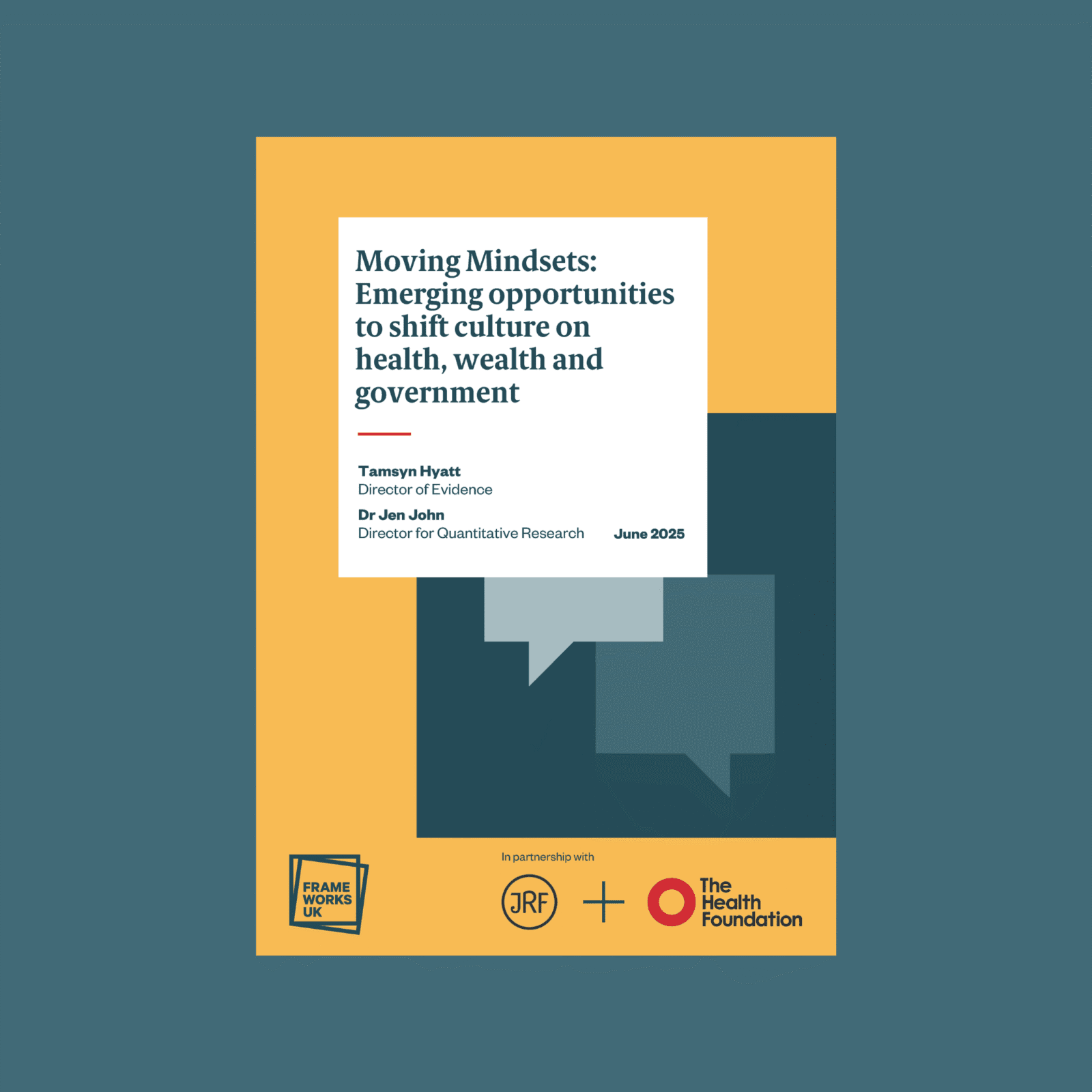Moving Mindsets: Emerging opportunities to shift culture on health, wealth and government
Moving Mindsets: Emerging opportunities to shift culture on health, wealth and government shares findings from new quantitative and qualitative research, including a first-of-its-kind survey.
Throughout 2024, we tracked public thinking on social issues across our four nations. Amidst the rising cost of living, a rapidly changing political landscape, and global conflict, how we reason about our world and how it works has changed.
This report contains six key findings about the state of British culture – and what this could mean for those of us working to change culture nationwide.
1. Individualism is our default – but not when we get issue-specific
If we want to make space for bold social change, we must first strengthen the idea that what surrounds us, shapes us. Unchecked, individualism may be one of the biggest barriers to progressive culture change.
2. Precarity is seen as our new normal – and people support bold action on
extreme wealth
The existence of poverty is no longer a contested idea: people are acutely aware of growing insecurity and hardship throughout our four nations. At the same time, people are paying more attention to the consequences of wealth disparity – and what should be done about it.
3. More of us believe the economy is rigged
The idea that laws and policies shape how our economy works is no longer a contested one. We have a new set of ideas to contest: who gets to make decisions about the systems that make up our economy, who benefits from them – and how decision makers are held to account when those systems are falling short.
4. We see health as a national resource
Health is understood as not only an individual concern, but a collective one. Now is the time to strengthen and reinforce this more systemic thinking on health – and the more ambitious policies and practice it makes space for.
5. Politicians are seen as ‘not like us’
An immediate priority for communicators wanting to see government action on social issues – from welfare, to housing policy – must be to build understanding of the systems and mechanisms of government.
6. Some mindsets cluster together, with major implications for social change work
A concentrated effort to move one ‘lynchpin’ mindset – through framing and other culture change work – will have a positive spillover effect. Communicators working across issues, or with limited resources, can maximise their impact by coordinating action around a single lynchpin.
With thanks for grant funding from the Health Foundation and the Joseph Rowntree Foundation.

